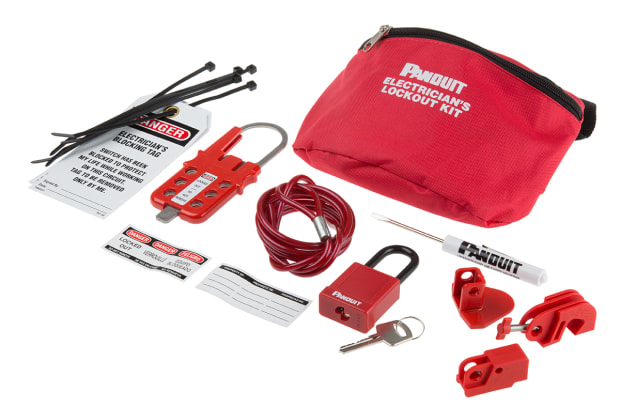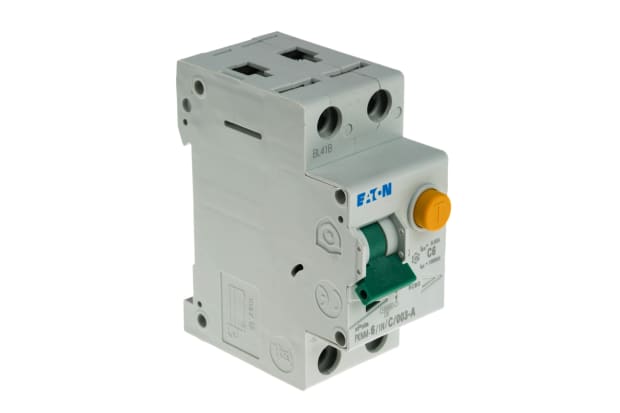- Published 11 Jan 2023
- Last Modified 26 Feb 2024
- 8 min
A Complete Guide to Industrial Electrical Safety

Reviewed by Shane Jaconelli, Technical Interaction Engineer (November 2020)
In this guide, we will examine the hazards of electricity in factories and other industrial environments. We will also provide guidance and discuss recommended methods for managing those risks and protecting the health and safety of employees, contractors and visitors alike.
Almost every workplace or factory features electrical items of some kind. If poorly maintained, machinery can cause serious accidents. The risks increase the larger and more powerful the equipment, making electrical safety measures even more important.
To comply with workplace safety requirements, all circuits and wiring must be properly and fully inspected on a regular basis. This is perhaps the single most effective way to protect employees from shocks.

What is Electrical Safety?
Electrical safety is a system of standards and measures which protect against electricity. They are designed to protect from electric shocks, arcing and common electrical hazards.
Electrical Safety Equipment
Electrical equipment should be in proper working order, fully grounded, and ideally double-insulated, if this is a possibility. The following products, protective equipment and electrical safety devices are widely used by industrial firms to protect their employees from electrocution and related risks.

Electrical Safety Mats
Also known as insulation mats or switchboard matting, these mats provide some degree of protection from high voltage discharges. They are made from insulated rubber and should be placed near potentially dangerous machinery and live switchboards.

Electrical Safety Toolkits
Toolkits are used by qualified professionals for testing and repair purposes. Tools that are insulated and have a VDE approval are ideal for use with electricity as they have been specifically designed to protect against the risk of an electrical shock.

Portable Appliance Testers (PAT)
Portable appliance tester kits are used by electricians and trained workers to verify the safety and working order of portable appliances. They can be particularly prone to wear to regular testing is essential.

Insulation Testing
Insulation testers are handheld devices used to monitor the electrical flow within cables, motors, switches and generators. The electricity that escapes from insulated cables can feed back, interfering with equipment.

Voltage Indication and Testing
Voltage indicators are standard electrician safety equipment. These handheld devices provide a quick and reliable indication of live currents in particular circuits.

Lockout Kits
Also known as lock-offs, lockout kits are sets of tools used to cut off electrical currents and ensure the safe isolation of devices that require repair or close checking.

Earth or Ground Testing Blocks
Also known as earth terminals or ground terminal blocks, earth blocks are used to safely ground cables and electrical wires to protect from electrical discharge or magnetic fields. Typically, they are screwed or clamped into place.

RCD Testing
Residual current devices (RCDs) automatically switch off electricity in the event of faults such as exposed wires, earthing failures or overheating. They are designed to protect individuals and can save lives. Alternative names include residual circuit breakers (RCCBs) in the UK and ground fault circuit interrupters in the United States.

Electrical Safety Signs and Posters
Posters provide a convenient way to promote safety and raise awareness of electrical safety practices. They should be displayed in common areas such as canteens and breakrooms, as well as near hazardous areas such as electrical rooms and substations.
Safety signs provide immediate visual signals of potential electrical hazards. Their effectiveness will be complemented by staff training. You should also provide updated safety handbooks as reference material for trained employees and on-site electricians.

PPE
Personal protective equipment is essential in a wide variety of industries. Appropriate PPE should be worn by electricians and those carrying out electrical work. The particular items required will depend largely on the hazard and the task in question. However, typical PPE for electricians may include safety glasses, safety boots, flame-resistant clothing, and insulating work gloves.
Electrical Safety Regulations
Employers are responsible for ensuring the safety of electrical equipment under the Health and Safety at Work Act 1974. These obligations extend to members of the public who visit or pass the premises. Employers must take ‘all reasonable and practicable steps to prevent danger from electrical systems’.
In January 2019, the BS 7671 (IET Wiring Regulations) came into force. Originally issued by the International Electrotechnical Commission (IEC), these new regulations set a range of electrical safety standards for wiring and electrical installation in the UK. Meanwhile, the Electrical Equipment (Safety) Regulations 2016 impose a range of responsibilities on manufacturers and distributors. Electrical Safety First, formerly known as the Electrical Safety Council, is an active campaigning charity which works to improve regulations and education.
You can find out more about wiring regulations and wiring colours in the UK in our handy guides.
Electrical Safety in the Workplace
Employers should have a comprehensive electrical safety policy in place. Safety training should also be completed in order to ensure that employees are aware of the potential risks they may encounter in their day-to-day roles.
Regular visits by official electrical inspectors from the Health and Safety Executive (HSE) are a must. They will check the safety of on-site equipment and provide advice on good working practice.
A key requirement for employers is to make sure possible electrical hazards in the workplace are frequently assessed and all equipment is safe and fit for purpose. They are required to keep a register documenting these inspections. When issues are identified, suitable repair work should be promptly completed.
Inspection and testing should be carried out by a ‘skilled person or persons, competent in such work’. Normally this 'competent person' implies a qualified and experienced electrical engineer, accredited by a recognised trade body and familiar with applicable codes of practice.
Key potential risks include:
- Isolators and fuse box cases: these should be kept closed and locked whenever possible
- Cables, sockets, plugs and power cords: these must be properly insulated and have sufficient capacity for their use
- Fuses and circuit-breakers: these must be properly matched to the circuit in which they are installed
- Machines and appliances: these must have an off switch that is easy to find and immediately accessible in case of emergency
- Overhead power lines: these should only ever be approached by qualified professionals. Overhead lines are extremely dangerous without the proper precautions
Ask employees to examine electrical equipment before use, looking for damage to plugs or adapters, loose cables and connectors, bare wiring, and similar issues. This is particularly vital for portable equipment which carries a higher risk of incurring damage.
Any issues should be immediately reported, with faulty equipment removed for repair or replacement. Repair work must only be carried out by trained individuals.
Employers failing to meet their legal obligations puts both employees and the business at risk. Faulty electrical equipment is a major cause of fire and if your insurer decides proper electrical safety precautions were not taken, they may refuse to pay out.
Electrical Safety Tips
The key principles of electrical safety at work are:
- Respect live electricity. Touching a live circuit could have fatal consequences
- Conduct regular inspections of equipment. Any electrical equipment should be routinely assessed. Is it still safe to use? Is the cabling properly sealed and insulated? Does it need repair or replacement?
- Ensure correct training. Everyone who uses electrical equipment in the course of their job should be confident in how to use it safely. Nobody should conduct any kind of repairs on electrical equipment without sufficient skills and training
- Do not overload sockets and extension cables as this can cause fires
- Switch off equipment after use and before cleaning or adjusting it in any way
- Check for hidden cables in walls before drilling or inserting nails
- Stop using faulty equipment immediately and have it checked by qualified personnel
- Make sure all equipment in use is suitable for its purpose. Ensure that it remains so via regular electrical safety checks and maintenance
Although the amount and strength of electrical equipment in use varies according to industry, these principles are fundamental and apply more or less equally to hospitals, factories, offices and warehouses.
What are the Main Electrical Risks?
Electricity is dangerous. It can arc across spilt liquid and damp surfaces, it can ignite flammable materials (even gases and dust) to start fires, and it has the potential to cause severe damage to property and equipment. Electric shock can lead to serious injury and fatalities, so the risks should not be ignored. Even relatively minor shocks can cause major injuries.
In the year to 2016, electrical fires caused almost 1,400 serious injuries and fatalities. That equates to around four per day. In 55% of cases, the misuse of electrical equipment was the root cause. More recently, electrical accidents caused four fatalities in UK workplaces during 2018-19.
Related Guides
Related links
- A Practical Guide to Chemical Safety
- A Guide to Electrical Safety Checks
- A Guide to ESD Testing
- MACHINE AND ELECTRICAL SAFETY: YOUR PRIORITY AND OURS
- Electrical Safety: A Practical Guide for Your Home
- A Complete Guide to Industrial Workplace Safety
- Guide to Smart Plugs
- A Complete Guide to Sensor Cable and Connectors



